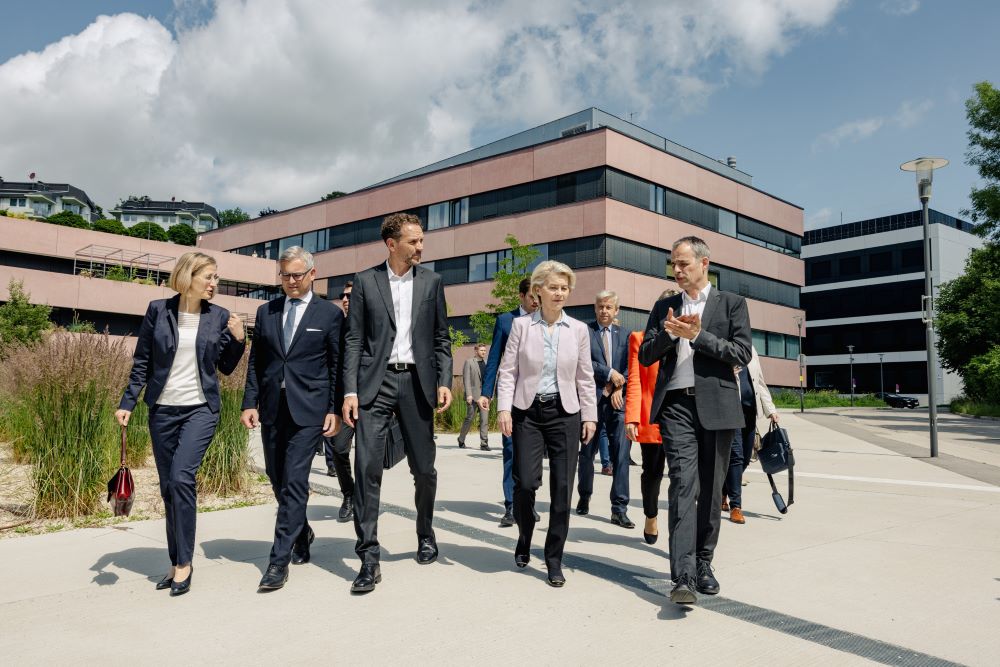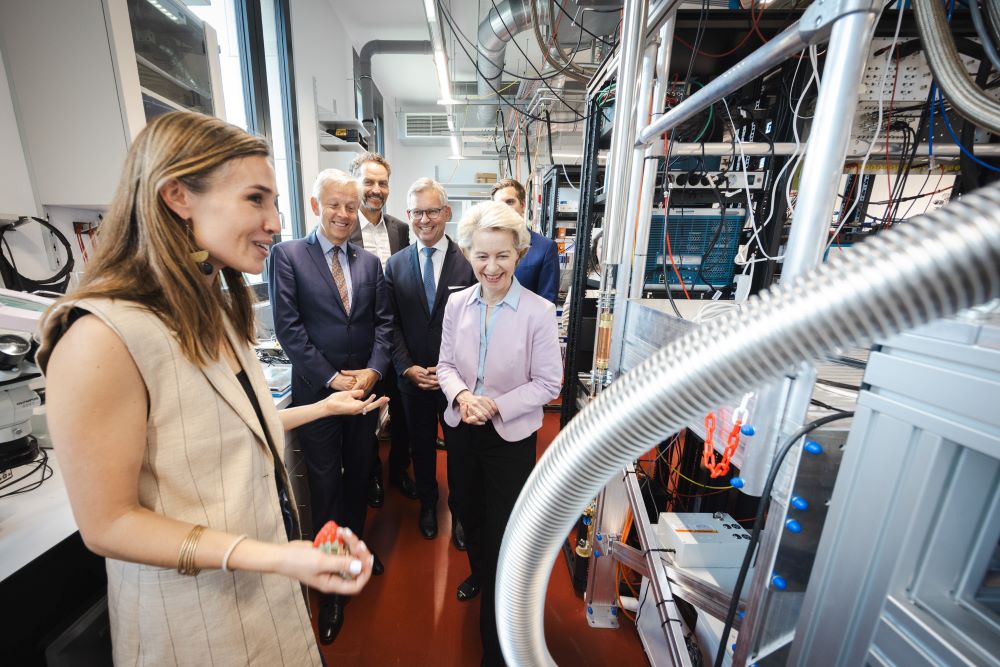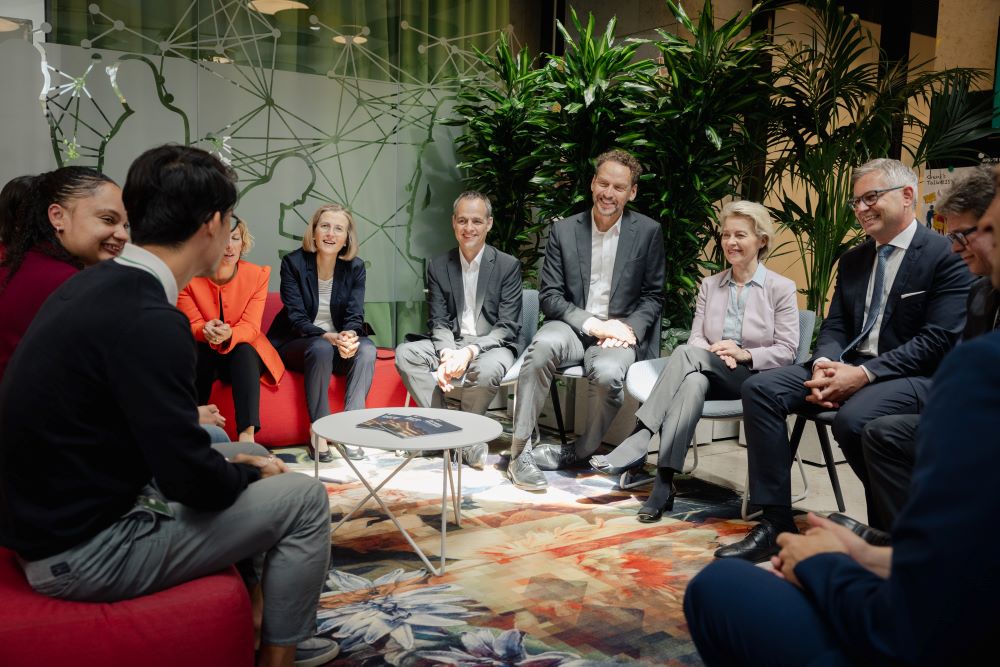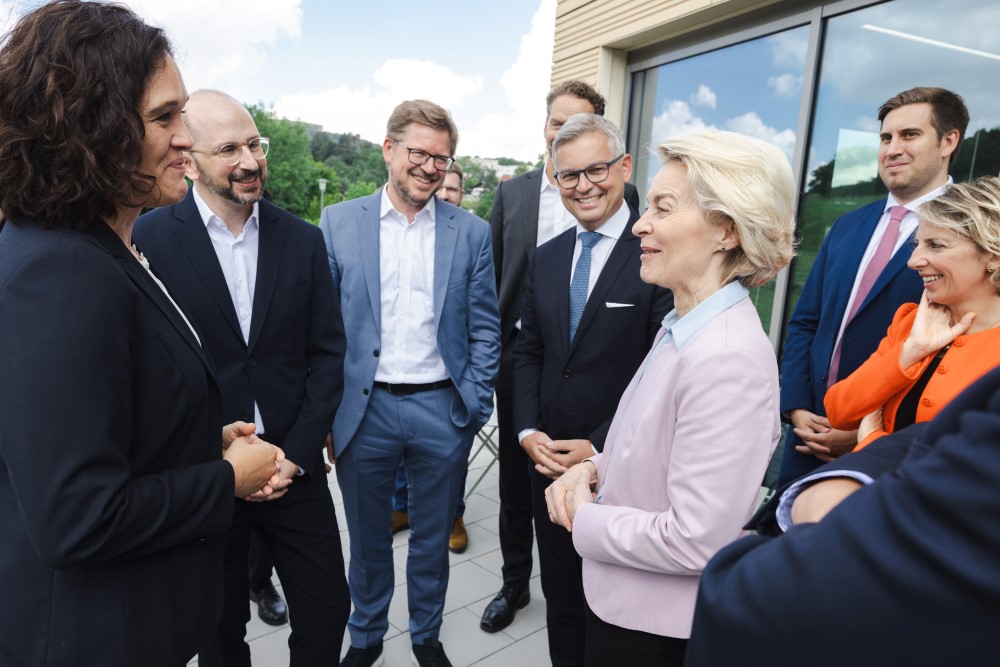June 7, 2024
Ursula von der Leyen at ISTA
President of the European Commission on campus in Klosterneuburg
The Institute of Science and Technology Austria (ISTA) hosted Ursula von der Leyen this Friday. The European Commission’s President met the management of the Institute as well as professors and PhD students to learn more about basic research at ISTA. She also met representatives of xista and scientific start-ups to discuss technology transfer.

Together with Austrian Federal Ministers Magnus Brunner and Martin Polaschek as well as ÖVP candidate Reinhold Lopatka, Ursula von der Leyen visited the campus of the Institute of Science and Technology Austria (ISTA) in Klosterneuburg today. ISTA President Martin Hetzer, Managing Director Georg Schneider and Vice Presidents Gaia Novarino and Monika Henzinger welcomed her. Direct insights into basic research were given in the laboratory of Assistant Professor Kimberly Modic, as well as in the exchange with PhD students Nikola Canigova, Christine Fiedler, and Mojtaba Tavakoli. Afterwards, xista, the Institute’s tech transfer ecosystem, was presented by its Managing Director Markus Wanko and the CEOs of the start-ups Solgate, Ariel Bensimon, and Sarcura, Daniela Buchmayr.

“Fascinating insights at ISTA. Here you can see the future in the making. Grounded in Austria, ISTA brings together scientists from all corners of the world — across disciplines. And you‘re building crucial links between excellent research, society, and the economy,” stated von der Leyen after her visit.

Ursula von der Leyen, former German Federal Minister for Family Affairs, Labor and Defense, has been President of the European Commission since 2019 and is the current lead candidate of the European People’s Party (EPP) and is visiting Vienna and Klosterneuburg this Friday.

The Institute of Science and Technology Austria (ISTA), founded in 2009 and core-funded by the federal and state governments, is one of the most successful research institutes in attracting funding from the European Research Council (ERC) and other EU funds. Over 1,200 people from 78 nations, including 36 European countries, work at the Institute. ISTA will grow to around 150 research groups and 2,000 employees by 2036.



